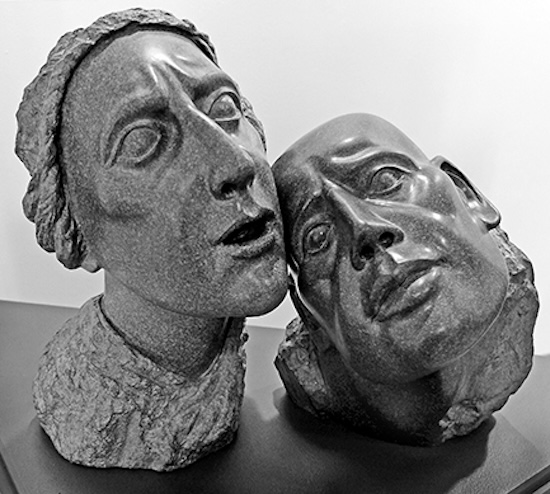Professional and Community Education: Learning from Our Past
American Jewish Experience in Medicine and Holocaust Genocide and Contemporary Bioethics
Two of the Center's community and professional education programs emphasize the importance of historical awareness and intellectual contributions in medicine and healthcare. They aim to educate, engage and foster understanding within the community by highlighting significant historical events and their impact on contemporary health care practices and ethics.
Helen Morris, MD, a trailblazer for women in medicine, funded the American Jewish Experience in Medicine program at the Center for Bioethics and Humanities. This program, led by Center Director Matthew Wynia, MD, MPH, aims to expand awareness of Jewish history in health sciences to address contemporary challenges and foster multicultural understanding.
The Holocaust Genocide and Contemporary Bioethics program educates health science trainees and the community on the ethical lessons from the Holocaust to prepare them for modern challenges. The program emphasizes the importance of protecting patients, speaking out against racism and antisemitism and understanding the complex role of science in policy making.

Heliotherapy on porches, Jewish Consumptive Relief Society, circa 1930
October 2023: BRCA Gene Mutations: Conversation on BRCA gene mutations and genetic testing
June 2023: Resilience & Reflections: Lilly Marks shares lessons on surviving adversity
September 2022: Jewish Bioethics: Paul Root Wolpe on essential bioethics for health professionals
April 2022: Medical Racism: Barron H. Lerner on medical racism and the American Jewish experience
March 2022: Treating Tuberculosis: Jeanne Abrams on Colorado's role in treating tuberculosis
The American Jewish Experience in Medicine Program expands awareness of Jewish history in health sciences, using this history to address contemporary challenges and foster multicultural understanding.
Both Dr. Wynia and Dr. Morris emphasize that understanding history is crucial for comprehending the present and building a better future. They assert that creating the future we want requires understanding how we arrived at our current state. History is often neglected in health humanities at most medical campuses, says Dr. Wynia, and CU Anschutz is unique in its strong efforts to learn from history.
Your gift makes a difference. Any contribution great or small is appreciated!
For information about donations to support the American Jewish Experience in Medicine program, please contact Carly Werbos at (609) 760-1599 in the CU Office of Advancement.

From the Witness to the Holocaust Sculptures series
2024: Unraveling the Past, Confronting the Present, and Charting an Ethical Future in Medicine: The History and Legacy of the Pernkopf Atlas
2023: Health Professions & Human Rights in Wartime: The Legacy of the Holocaust for Medicine and War Crimes Today
2022: Legacies of the Holocaust and Health Equity Today
2021: Then and Now: Courage, Complicity and Compromise
2019: Medicine and Morality in Times of War
2018; Echoes of the Holocaust: Cultivating Compassion in 21st Century Healers
2017; Commemorating the 70th Anniversary of the Nuremberg Doctors' Trial
The Witness to the Holocaust Sculpture Series, 1988-91 by Devorah Sperber, is part of the permanent collection at the University's Strauss Health Sciences Library.

The sculpture series traveled with the Anne Frank Exhibition for more than 25 years before arriving at the University of Colorado in 2018 when the collection was donated by the Sperber family in memory of Henry Sperber, husband, father, and Holocaust survivor.
This series, unique among health sciences campuses in the United States, aims to ensure that future health professionals uphold their ethical obligations, regardless of external pressures. There are several ways to get involved:
- Join our mailing list to stay up-to-date on Holocaust Genocide and Contemporary Bioethics programming.
- Donate to the William S. Silvers, MD, Holocaust Genocide Contemporary Bioethics Program Fund to support current programming and ensure the future of this program. For information about making a gift to the Holocaust Genocide and Contemporary Bioethics program fund, contact Carly Werbos in the CU Office of Advancement at Carly.Werbos@cuanschutz.edu.
- For more information about the Holocaust Genocide and Contemporary Bioethics program, email Lisa Culhane (via the link below).
Learn More: Holocaust Genocide and Contemporary Bioethics Program